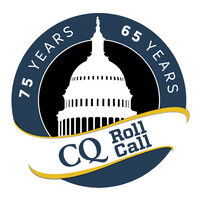Political Turmoil: A Nation on Edge** **
July 25, 2024, 10:21 pm

Location: United States, District of Columbia, Washington
Employees: 201-500
Founded date: 1945

Location: United States, District of Columbia, Washington
Employees: 51-200
Founded date: 1955

Location: United States, California, San Francisco
Employees: 1001-5000
Founded date: 2011
** The political landscape in the United States is shifting like sand beneath our feet. Recent events have sent shockwaves through the corridors of power, leaving citizens grappling with uncertainty. The resignation of the Secret Service director following a failed assassination attempt on former President Trump has ignited a firestorm of accountability. Meanwhile, President Biden's unexpected endorsement of Vice President Kamala Harris as his successor has thrown the Democratic Party into a whirlwind of speculation and intrigue.
The Secret Service, once a bastion of security, now finds itself under a microscope. The resignation of Director Kimberly Cheatle comes after intense scrutiny from both sides of the aisle. Lawmakers are demanding answers, and a task force is being assembled to investigate the lapses that allowed a shooter to threaten Trump during a rally. The stakes are high. Trust in the Secret Service has been shaken, and rebuilding that faith will be no easy task.
The House Oversight and Accountability Committee is poised to delve deep into the operational failures that led to this crisis. The committee's bipartisan approach, with seven Republicans and six Democrats, reflects the gravity of the situation. Accountability is the name of the game. Lawmakers are adamant that the Secret Service must perform at its peak, especially in an election year. The call for transparency echoes through the halls of Congress, as the nation watches closely.
In a parallel narrative, President Biden's endorsement of Harris marks a pivotal moment for the Democratic Party. After weeks of speculation and pressure, Biden has stepped aside, allowing Harris to take the reins. This decision comes on the heels of a disastrous debate performance against Trump, leaving many to wonder what prompted such a dramatic shift. Biden's health has been a concern, with his recent battle with COVID-19 casting a shadow over his campaign. The question lingers: Is he fit to lead?
Harris now stands at the precipice of a new political era. The Democratic National Convention looms, and the party's delegates are poised to play a crucial role in shaping the future. The landscape is ripe for a primary battle, but the question remains: Who will step forward to challenge Harris? Names are being whispered, but no one has officially declared their candidacy. The uncertainty adds to the tension, as the party grapples with its identity and direction.
The endorsement from Biden carries weight, but not all Democrats are on board. Prominent figures like former Presidents Bill and Hillary Clinton have rallied behind Harris, while others remain silent. Senate Majority Leader Chuck Schumer and House Minority Leader Hakeem Jeffries have praised Biden but have yet to extend their support to Harris. This division within the party raises eyebrows and questions about unity moving forward.
As the political chess game unfolds, Republicans are quick to seize the opportunity. Trump's rhetoric has sharpened, targeting both Biden and Harris. He paints them as complicit in the nation's struggles, calling for their removal from office. The GOP is rallying its base, positioning itself as the party of accountability and change. The narrative is clear: the Democrats are in disarray, and the Republicans are ready to capitalize.
The implications of Biden's withdrawal extend beyond the immediate election. The Democratic Party must navigate a complex web of alliances and rivalries. Harris's choice of a running mate will be scrutinized closely. Will she select someone who can unite the party or deepen the divides? The pressure is mounting, and every decision carries weight.
In the midst of this turmoil, the American public is left to ponder the future. Trust in political institutions is waning, and the call for accountability resonates louder than ever. The Secret Service's failures have exposed vulnerabilities, while Biden's endorsement of Harris has ignited debates about leadership and vision. The nation is at a crossroads, and the choices made in the coming weeks will shape the political landscape for years to come.
As the dust settles, one thing is clear: the stakes have never been higher. The political arena is a battleground, and every move counts. The American people are watching, waiting for leaders who can rise to the occasion. The road ahead is fraught with challenges, but it also holds the potential for change. In this game of power, the players must be strategic, and the outcomes will reverberate far beyond the election.
In conclusion, the political turmoil in the United States is a reflection of a nation grappling with its identity. The resignation of the Secret Service director and Biden's endorsement of Harris are just two pieces of a larger puzzle. As the country moves forward, the quest for accountability, unity, and leadership will define the path ahead. The political landscape is shifting, and the outcome remains uncertain. The American people deserve clarity, and it is up to their leaders to deliver.
The Secret Service, once a bastion of security, now finds itself under a microscope. The resignation of Director Kimberly Cheatle comes after intense scrutiny from both sides of the aisle. Lawmakers are demanding answers, and a task force is being assembled to investigate the lapses that allowed a shooter to threaten Trump during a rally. The stakes are high. Trust in the Secret Service has been shaken, and rebuilding that faith will be no easy task.
The House Oversight and Accountability Committee is poised to delve deep into the operational failures that led to this crisis. The committee's bipartisan approach, with seven Republicans and six Democrats, reflects the gravity of the situation. Accountability is the name of the game. Lawmakers are adamant that the Secret Service must perform at its peak, especially in an election year. The call for transparency echoes through the halls of Congress, as the nation watches closely.
In a parallel narrative, President Biden's endorsement of Harris marks a pivotal moment for the Democratic Party. After weeks of speculation and pressure, Biden has stepped aside, allowing Harris to take the reins. This decision comes on the heels of a disastrous debate performance against Trump, leaving many to wonder what prompted such a dramatic shift. Biden's health has been a concern, with his recent battle with COVID-19 casting a shadow over his campaign. The question lingers: Is he fit to lead?
Harris now stands at the precipice of a new political era. The Democratic National Convention looms, and the party's delegates are poised to play a crucial role in shaping the future. The landscape is ripe for a primary battle, but the question remains: Who will step forward to challenge Harris? Names are being whispered, but no one has officially declared their candidacy. The uncertainty adds to the tension, as the party grapples with its identity and direction.
The endorsement from Biden carries weight, but not all Democrats are on board. Prominent figures like former Presidents Bill and Hillary Clinton have rallied behind Harris, while others remain silent. Senate Majority Leader Chuck Schumer and House Minority Leader Hakeem Jeffries have praised Biden but have yet to extend their support to Harris. This division within the party raises eyebrows and questions about unity moving forward.
As the political chess game unfolds, Republicans are quick to seize the opportunity. Trump's rhetoric has sharpened, targeting both Biden and Harris. He paints them as complicit in the nation's struggles, calling for their removal from office. The GOP is rallying its base, positioning itself as the party of accountability and change. The narrative is clear: the Democrats are in disarray, and the Republicans are ready to capitalize.
The implications of Biden's withdrawal extend beyond the immediate election. The Democratic Party must navigate a complex web of alliances and rivalries. Harris's choice of a running mate will be scrutinized closely. Will she select someone who can unite the party or deepen the divides? The pressure is mounting, and every decision carries weight.
In the midst of this turmoil, the American public is left to ponder the future. Trust in political institutions is waning, and the call for accountability resonates louder than ever. The Secret Service's failures have exposed vulnerabilities, while Biden's endorsement of Harris has ignited debates about leadership and vision. The nation is at a crossroads, and the choices made in the coming weeks will shape the political landscape for years to come.
As the dust settles, one thing is clear: the stakes have never been higher. The political arena is a battleground, and every move counts. The American people are watching, waiting for leaders who can rise to the occasion. The road ahead is fraught with challenges, but it also holds the potential for change. In this game of power, the players must be strategic, and the outcomes will reverberate far beyond the election.
In conclusion, the political turmoil in the United States is a reflection of a nation grappling with its identity. The resignation of the Secret Service director and Biden's endorsement of Harris are just two pieces of a larger puzzle. As the country moves forward, the quest for accountability, unity, and leadership will define the path ahead. The political landscape is shifting, and the outcome remains uncertain. The American people deserve clarity, and it is up to their leaders to deliver.